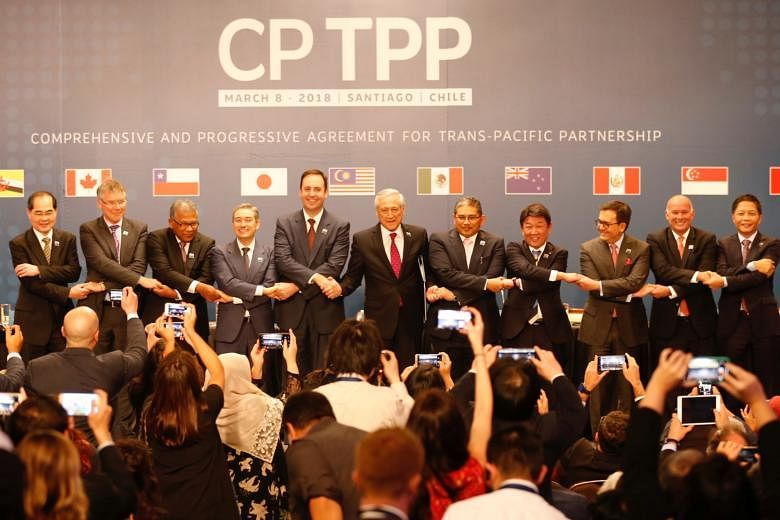Singapore has ratified a key regional trade deal that looked dead and buried 18 months ago after President Donald Trump said the United States would not sign on.
Regional leaders revived the wide-ranging pact, and inked a revised deal in March. Singapore's formal adoption of the deal makes it the third country to ratify the Comprehensive and Progressive Agreement for Trans-Pacific Partnership (CPTPP) after Mexico and Japan.
Prime Minister Lee Hsien Loong noted in a Facebook post that "amid growing trade tensions and anti-globalisation sentiments, the CPTPP signals Singapore's commitment to free trade and a rules-based trading system".
He also thanked the Ministry of Trade and Industry (MTI) team for its hard work on this project over many years.
Trade and Industry Minister Chan Chun Sing called the CPTPP an important agreement that will complement Singapore's existing network of bilateral trade deals. "It will strengthen trade among countries in the Asia-Pacific, resulting in a more seamless flow of goods, services and investment," he said.
The CPTPP, which is a revision of the original Trans-Pacific Partnership after the US withdrew from it in January last year, will foster trade in a combined market of 500 million people with a gross domestic product of US$10 trillion (S$13.7 trillion).
The historic pact establishes rules in new areas, such as e-commerce, and will enter into force 60 days after six of the 11 signatories ratify the agreement.
Mexico was the first to ratify the agreement in April, with Japan following suit on July 6. The other countries in the bloc are Australia, Brunei, Canada, Chile, Malaysia, New Zealand, Peru and Vietnam.
All businesses are expected to benefit. Mr Chan noted on Facebook that the pact "also promotes innovation, productivity, competitiveness and inclusive trade, bringing benefits to even small and medium-sized businesses".
Foreign Minister Vivian Balakrishnan posted that the deal "will create more economic opportunities for Singapore companies, which will be better placed to tap growth opportunities and increased market access in the Asia-Pacific".
Talks on the CPTPP concluded on Jan 23 in Tokyo, and the agreement was signed on March 8 in Santiago.
Singapore companies interested in business opportunities in CPTPP countries can contact Enterprise Singapore or visit the MTI website for more information.
Singapore Business Federation chief executive Ho Meng Kit said there will be rules that will promote the participation of small and medium-sized enterprises (SMEs).
"For example, there is a chapter that includes commitments to provide user-friendly and easily accessible information of CPTPP provisions for SMEs," he noted. "The agreement also has modern rules on e-commerce which will allow these companies to participate across the various countries."


